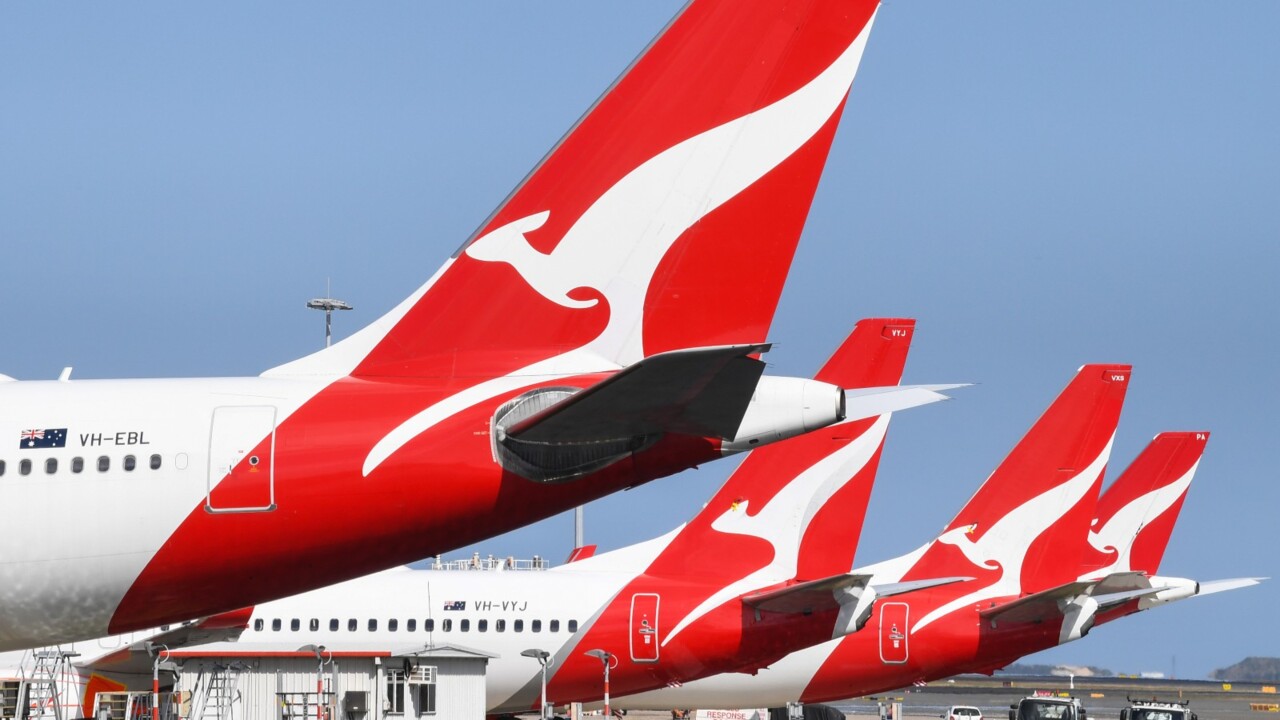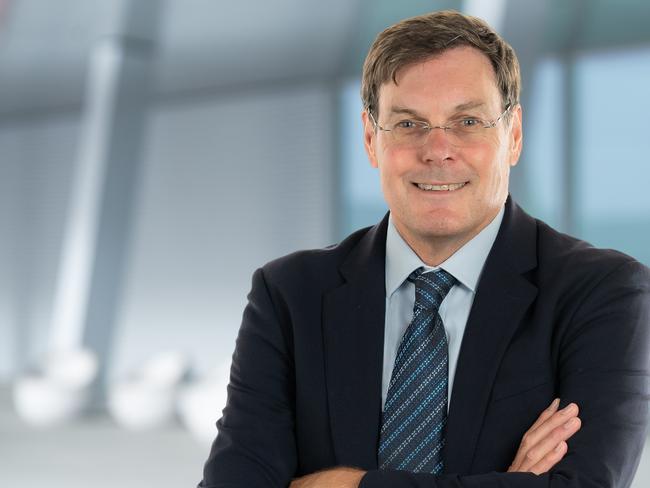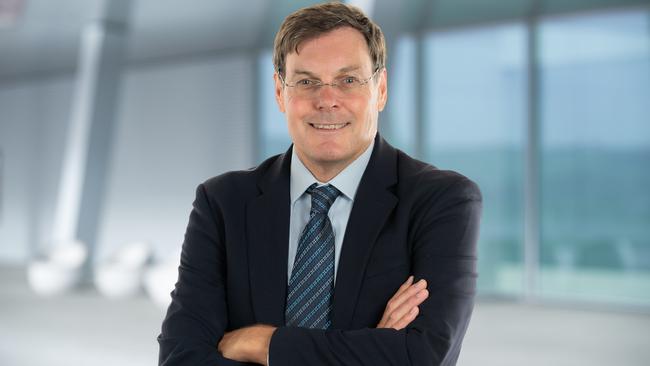Qantas passengers better off for outsourcing of ground handling operations, says Swissport CEO
Swissport’s global chief Warwick Brady says passengers are better off as a result of Qantas’ decision to outsource its ground handling operations.

The global head of ground handling giant Swissport says Qantas’ controversial outsourcing decision was in the best interests of customers, who would otherwise face much higher airfares.
On a whirlwind visit to Swissport’s Brisbane office where workers can slippery slide from the top floor to ground level, chief executive Warwick Brady says outsourcing ground handling made complete sense for airlines that were better off focusing on flying.
Mr Brady said Covid-19 had accelerated outsourcing at airlines, with Swissport picking up considerable work in Australia and Latin America.
The Zurich headquartered company now commanded 45 per cent of the Australian market, and 15 per cent worldwide, and was also expanding its cargo and airport lounge interests.
Mr Brady said the industry was better off using specialist service providers, with Swissport investing €200m a year into new equipment.
“If you’ve got high costs, the passengers have to pay. If you ask passengers if they want a $50 fare or $100 fare and have outsourcing or no outsourcing, well, I will go with the $50 fare,” he said.
Although Qantas insisted cost was the main reason for its decision to outsource almost 1700 ground handling workers during Covid-19, the Federal Court found the airline could not prove it was not motivated by a desire to avoid industrial action by the heavily unionised workforce.
Asked what he made of the court ruling, Mr Brady said “unions sometimes get in the way of market dynamics”.
“For Qantas, the economic benefits plus the service benefits are still better for the outsourcing,” Mr Brady said.
“In the end, if you’ve got a workforce that costs you a lot of money, your passengers are going to pay more.”


The problems experienced by Qantas post-outsourcing, including a viral video of Swissport employees throwing bags onto conveyor belts, were part of the global challenge of going “from zero to 80” in the wake of Covid-19 and very limited travel, said Mr Brady.
“It was just chaos,” he said.
“First of all, in 2021 it was stop, start. We lost a huge amount of money because we employed a load of people and then the flights didn’t turn up because governments said ‘no flying’.”
Since then, Swissport had recruited around 40,000 people across its global network and continued to grow, particularly in the areas of cargo handling and airport lounges.
He said the rate of mishandled bags was now under one in every 1000 bags on point-to-point flights, and a bit higher for multisector flights.
“We’re investing in services for airlines where the passenger can just go and scan a QR code, enter their bag tag and determine where their bags are, and when they are arriving,” Mr Brady said.
“That’s the most frustrating issue from a customer perspective — ‘my bag’s not here, but when is it coming’ and that’s what we need as an industry to get better at.”
Swissport’s call centre in Manila meant they could deal directly with customers and look for their bag.
“There’s a world tracer (program). It’s a global system where you can see where the bag is,” he added.
Investing in sustainability was another focus for the company, despite its ground-based activities representing a very small portion of the aviation industry’s global carbon emissions.
Already 50 per cent of its Australian fleet of baggage tugs were electric, with Swissport aiming to have all of its equipment electrified by 2050.
“We’re very serious about the issue of sustainability, and we’re going for gold,” Mr Brady said.
“We’re very different from our competitors. We do things very differently, and we stand in the shoes of our customers.”







To join the conversation, please log in. Don't have an account? Register
Join the conversation, you are commenting as Logout